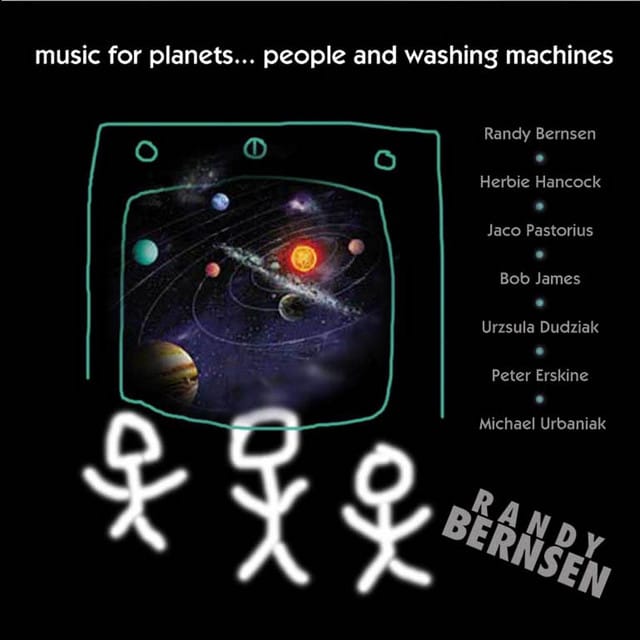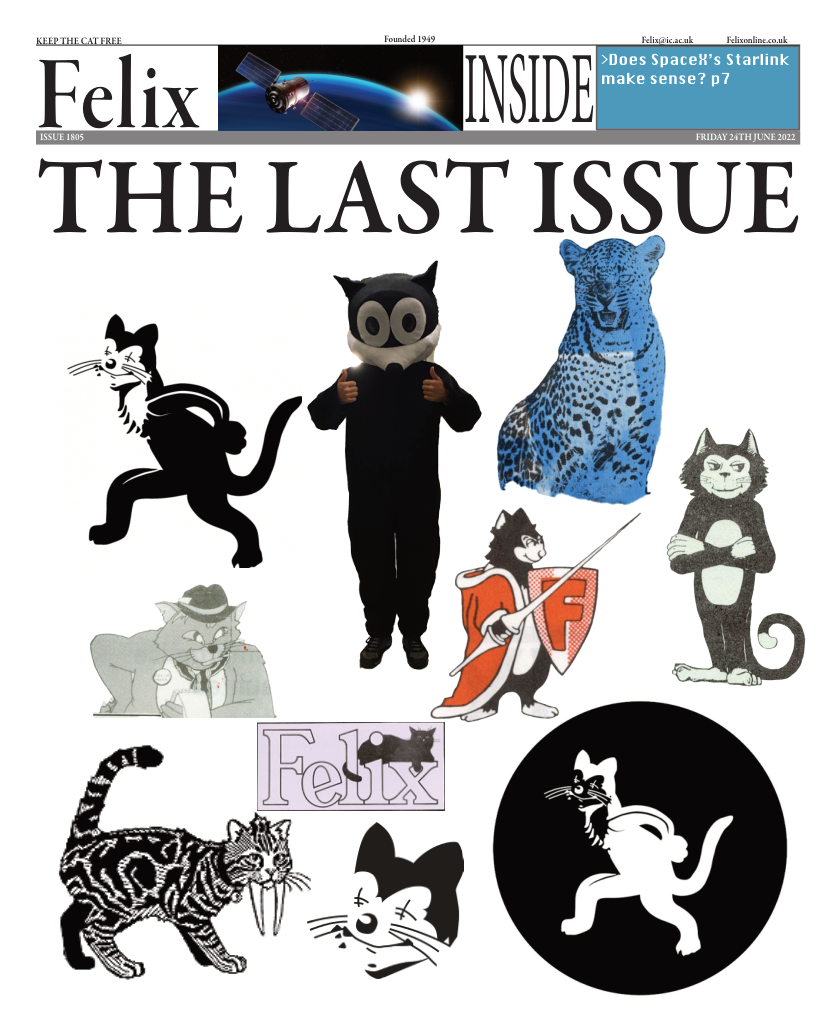Stupid Title, Enjoyably Stupider Music
A look back at Music for Planets, People & Washing Machines by Randy Bernsen

Jaco Pastorius is considered one of the greatest electric bass players of all time. From his debut record in 1975 to his death in 1987, he recorded with a wide variety of artists, showcasing his impressive versatility as a bassist, whether it be through his use of harmonics and 16th note grooves as part of the jazz fusion group Weather Report, or his expressive fretless playing on Joni Mitchell’s Hejira. If you scroll through his discography on Wikipedia, as I did the other day, you may recognise some other names: Herbie Hancock, Pat Metheny, Little Beaver (??), but one curious title caught my eye. In 1984, Pastorius recorded bass for 2 tracks on Randy Bernsen’s debut album: Music for Planets, People & Washing Machines.
Even odder is the album art. A low resolution stock illustration of the solar system, with the Milky Way splattered in the middle of it, surrounded by MS Paint quality lines depicting a television, I presume. Under it, 3 white stick figures, and Randy’s name printed diagonally in all caps. This album truly asks you not to judge a book by its cover. Nonetheless, press play.
‘Sir Yellow Bird’ kicks off with a sweet synthesizer run played by Bernsen, which is promptly ‘woooo’d by Mike Couzzi (credited as doing ‘noises’ in the album tracklist). After some chords, Bernsen enters a long, spacey funk solo over some tight drums with a possibly regrettable jagged synth patch. The track is mercifully saved by a smoother Rhodes solo, only for Bernsen’s synth to make a reprise at the end to see the 7 minute track off. ‘Conehead Bop’ follows a similar trajectory, though a lot easier on the ears, particularly the vocals interjecting with ‘conehead bop’ during the solos, making for a charming listen. Later on, a reggae version of the jazz standard ‘My Funny Valentine’, with a very much non-jazz guitar solo attached, because why not.
Perhaps I have been too harsh. These compositions are strong, each track having an undeniable drive to them, infectious rhythms and impeccably performed rhythm sections. A return to the album cover reveals the other immense talents behind this project, such as the aforementioned jazz legend Herbie Hancock and Weather Report’s drummer Peter Erskine. In fact, it is in track 3, ‘Olde Hats’, that Erskine and Pastorius first feature, and it was at this moment that I was convinced of this album’s brilliance. Reminiscent of Pastorius’ own work with his big band (particularly of Liberty City), with its steel drums and Jaco’s characteristic muted bass accents and double stops, accompanied with confident horns, this likely would be the most immediate track for newcomers. I will also admit that this is the only ‘normal’ track the album has to offer.
I do think this album is worth your time. The musicianship is excellent, even if it is in service of, admittedly, very ‘out-there’ compositions. Whether you choose to listen for Pastorius, Hancock, or whatever the hell the vocals are doing on ‘Windsong’, this album will at the very least entertain if slightly confuse. But I won’t blame you if you choose to not give the record a second spin. I’m already kind of sick of listening to it for this review.









